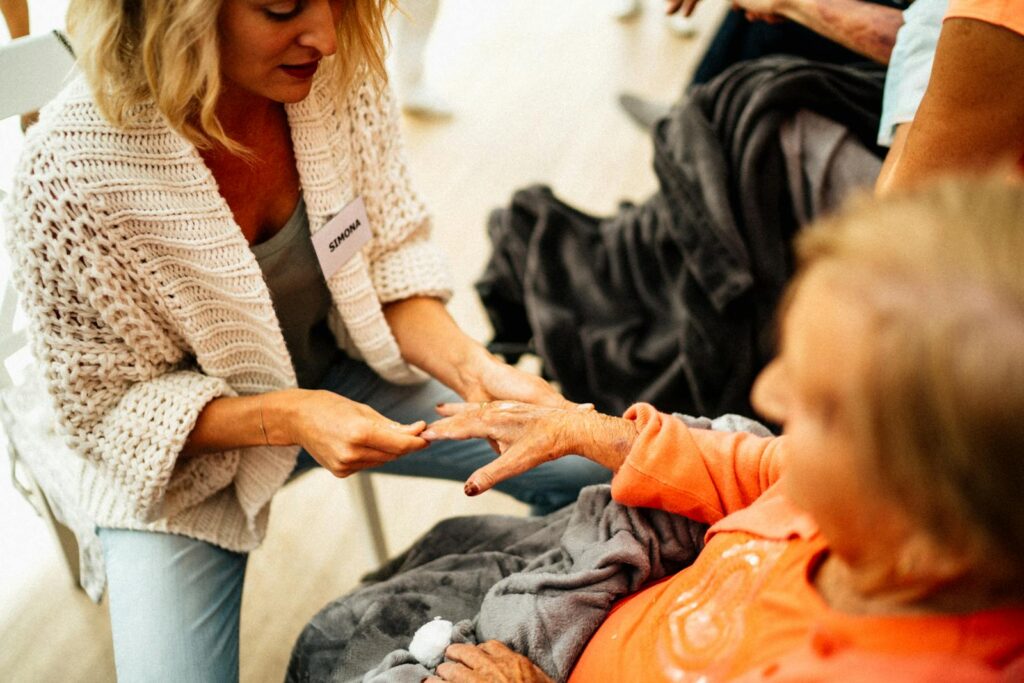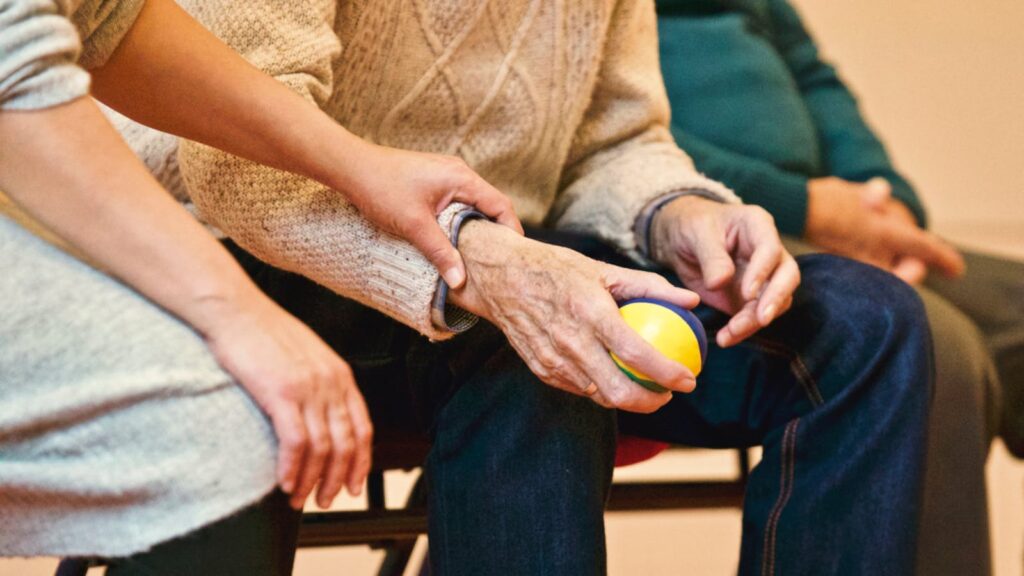6 Proven Stress Management Techniques for Seniors
Introduction to Stress Management for Seniors
Stress is a normal part of life, but it can be especially challenging for seniors.
As people age, they may experience a number of changes that can contribute to stress, including:
- Retirement
- Health problems
- Loss of loved ones
- Financial difficulties
- Social isolation
When stress is left unchecked, it can have a negative impact on a senior’s physical and mental health.
It can increase their risk of developing chronic diseases, such as heart disease and diabetes, and it can also lead to depression and anxiety.
However, there are a number of things that seniors can do to manage stress and improve their overall well-being.
These include:
- Making healthy lifestyle choices
- Getting regular exercise
- Eating a healthy diet
- Getting enough sleep
- Practicing relaxation techniques
This article will provide seniors with information on how to manage stress, including tips on how to identify stressors, how to cope with stressful events, and how to use relaxation techniques to relieve stress.
The Different Types of Stress

There are many different types of stress that seniors may experience, including:
- Physical stress
- Emotional stress
- Cognitive stress
- Social stress
Physical stress can be caused by a variety of factors, such as illness, injury, or pain.
Emotional stress can be caused by events such as grief, loss, or financial problems.
Cognitive stress can be caused by challenges such as learning new things or making decisions.
Social stress can be caused by interactions with other people, such as conflict or discrimination.
It is important to note that not all stress is bad. In fact, some stress can be helpful in motivating us to achieve our goals.
However, too much stress can be harmful to our physical and mental health.
The Effects of Stress on Seniors
Stress can have a significant impact on seniors’ physical and mental health.
Some of the most common effects of stress in seniors include:
- Increased risk of heart disease, stroke, and other health problems
- Weakened immune system
- Sleep problems
- Depression and anxiety
- Memory problems
- Social isolation
It’s important to note that not all seniors experience stress in the same way.
Some seniors may be more resilient to stress than others.
However, it’s important to be aware of the potential effects of stress so that you can take steps to manage it.
How to Manage Stress
Stress is a normal part of life, but it can be especially difficult to manage for seniors.
As people age, they may experience a number of changes that can make them more vulnerable to stress, including:
* Physical changes: As people age, their bodies go through a number of changes that can make them more susceptible to stress. These changes include decreased muscle mass, decreased flexibility, and decreased cardiovascular function.
* Cognitive changes: As people age, they may experience a decline in their cognitive abilities, such as memory, processing speed, and problem-solving skills. This can make it more difficult for them to cope with stress.
* Emotional changes: As people age, they may experience a number of emotional changes, such as increased anxiety, depression, and loneliness. These changes can make them more likely to experience stress.
Managing stress is important for seniors’ overall health and well-being.
There are a number of things that seniors can do to manage stress, including:
* Identify your stressors: The first step to managing stress is to identify what stressors are causing you the most difficulty. Once you know what your stressors are, you can start to develop strategies for coping with them.
* Develop coping mechanisms: There are a number of different coping mechanisms that seniors can use to manage stress. Some common coping mechanisms include exercise, relaxation techniques, and social support.
* Take care of yourself: It’s important for seniors to take care of themselves physically and mentally in order to manage stress. This includes eating a healthy diet, getting enough sleep, and exercising regularly.
* Seek professional help: If you’re struggling to manage stress on your own, it’s important to seek professional help. A therapist can help you identify the root of your stress and develop coping mechanisms that work for you.
Managing stress is not always easy, but it is possible. By following these tips, seniors can learn to manage stress and live healthier, happier lives.
Coping with Stressful Events

Stressful events are a normal part of life, but they can be particularly challenging for seniors.
This is because seniors are more likely to experience chronic health conditions, financial difficulties, and social isolation.
As a result, they may be more vulnerable to the negative effects of stress.
However, there are a number of things that seniors can do to cope with stressful events. These include:
- Identifying your stressors
- Developing coping mechanisms
- Seeking support from others
- Taking care of your physical and mental health
Let’s take a closer look at each of these coping strategies.
Identifying your stressors
The first step to coping with stress is to identify what is causing it.
Once you know what your stressors are, you can start to develop strategies for dealing with them.
There are a number of different ways to identify your stressors.
You can:
- Keep a journal of your daily activities and thoughts.
- Pay attention to the times when you feel stressed.
- Talk to your friends, family, or therapist about what is causing you stress.
Once you have identified your stressors, you can start to develop coping mechanisms for dealing with them.
Developing coping mechanisms
There are a number of different coping mechanisms that seniors can use to deal with stress. These include:
- Exercise
- Relaxation techniques
- Social support
- Positive thinking
Exercise is a great way to relieve stress and improve your overall health. Relaxation techniques, such as yoga, meditation, and deep breathing, can help you to calm your mind and body.
Social support can help you to feel connected to others and reduce feelings of isolation.
Positive thinking can help you to focus on the positive aspects of your life and develop a more optimistic outlook.
It is important to find coping mechanisms that work for you and to use them regularly. The more you use these coping mechanisms, the better you will be able to manage stress.
Seeking support from others

Seniors who are struggling to cope with stress should consider seeking support from others.
This could include talking to a friend, family member, or therapist.
There are also a number of support groups available for seniors who are dealing with stress.
Support groups can provide a safe and supportive environment where seniors can share their experiences and learn from others.
They can also provide helpful information and resources on how to cope with stress.
Taking care of your physical and mental health
It is important for seniors to take care of their physical and mental health in order to cope with stress.
This includes eating a healthy diet, getting regular exercise, and getting enough sleep.
It also includes managing chronic health conditions and seeking treatment for mental health problems.
By following these tips, seniors can learn to cope with stress and live healthier, happier lives.
Stress Management Techniques
There are many different stress management techniques that can help seniors cope with the challenges of aging.
Some of the most effective techniques include:
Maintaining good mental health is as crucial as taking care of our physical well-being. To achieve a sound balance, several strategies can be employed:
Relaxation Techniques
Yoga, meditation, and deep breathing are powerful relaxation methods that help calm the mind and reduce stress. Here’s a closer look at each:
- Yoga: This age-old practice combines physical postures, breathing exercises, and meditation. It is known to enhance flexibility, strength, and balance while promoting a sense of inner peace.
- Meditation: A mental exercise that involves concentration and mindfulness. Regular meditation can help clear the noise of daily life, resulting in better focus and tranquility.
- Deep Breathing: Simply focusing on taking slow, deep breaths can induce a state of relaxation, helping to lower blood pressure and evoke a sense of calm.
Exercise
Physical activity releases endorphins, often referred to as the body’s natural mood lifters.
Regular exercise not only improves physical health but also helps in reducing anxiety and depression.
It can serve as a constructive distraction, allowing you to find some quiet time to break out of the cycle of negative thoughts that feed these issues.
Social Support
Building strong, healthy relationships with friends and family provides social support, which is an essential factor in coping with stress.
Knowing you have a network to lean on can make challenging times more manageable.
Engaging in social activities can provide a sense of belonging and increase your level of happiness.
Healthy Eating
A balanced diet can significantly impact your emotional and mental health.
Healthy eating involves choosing a variety of nutrients from fruits, vegetables, lean proteins, and whole grains.
Nutritious foods improve brain function and are vital for maintaining energy levels and preventing mood swings.
Sleep Hygiene
Good sleep hygiene is critical for mental health.
Establishing a routine that promotes regular and restful sleep can make a considerable difference in your mood and energy levels.
This includes practices such as sticking to a sleep schedule, creating a comfortable sleep environment, and avoiding caffeine or electronics before bedtime.
Cognitive-behavioral Therapy

Cognitive-behavioral therapy (CBT) is a form of psychotherapy that can be highly effective in treating mental health disorders.
It works by helping individuals identify and challenge negative thought patterns and behavior, thereby enabling them to view situations more clearly and respond to them in a healthier way.
Incorporating these methods into your daily life can lead to significant improvements in your mental health and overall sense of well-being.
Remember, the path to mental wellness is a journey, not a race—allow yourself the grace to grow and heal at your own pace.
Each individual will find different stress management techniques that work best for them. It is important to experiment with different techniques until you find ones that you enjoy and that help you to feel better.
Here are some tips for using stress management techniques effectively:
- Make time for stress management in your daily routine.
- Find a quiet place where you can relax and focus on your breathing.
- Start slowly and gradually increase the amount of time you spend practicing each technique.
- Be patient and persistent. It takes time to develop the skills necessary to manage stress effectively.
Stress management is an important part of a healthy lifestyle for seniors.
By practicing stress management techniques, seniors can improve their physical and mental health, reduce their risk of chronic diseases, and live longer, happier lives.
Resources for Seniors
There are a number of resources available to help seniors manage stress.
These resources can provide information, support, and tools to help seniors cope with the challenges of aging.
Some of the resources that are available to seniors include:
- Government programs and services
- Non-profit organizations
- Mental health professionals
- Online resources
- Books and articles
Government programs and services can provide financial assistance, healthcare, and other support to seniors who are struggling with stress. Some of the programs that are available include:
Non-profit organizations can also provide a variety of resources to help seniors manage stress.
These organizations offer support groups, counseling, and educational programs.
Some of the organizations that offer these services include:
- The National Institute on Aging (NIA)
- The American Association of Retired Persons (AARP)
- The National Alliance on Mental Illness (NAMI)
- The Alzheimer’s Association
Mental health professionals can also help seniors manage stress.
Psychologists, psychiatrists, and counselors can provide therapy, medication, and other services to help seniors cope with the challenges of aging.
Books and articles can also be a helpful resource for seniors who are looking for information on stress management.
There are a number of books and articles that offer tips and strategies for coping with stress. Some of the books and articles that offer these resources include:
- “The Relaxation Response” by Herbert Benson
- “Stress Less, Live More” by Richard Carlson
- “The Antidote to Stress” by Robert Sapolsky
- “The Power of Positive Thinking” by Norman Vincent Peale
- “Mindfulness for Beginners” by Jon Kabat-Zinn
By taking advantage of the resources that are available, seniors can learn how to manage stress and live healthier, happier lives.</p
Conclusion
Stress is a normal part of life, but it can be especially difficult for seniors to manage.
This is because seniors may have more health problems, financial worries, and social stressors than younger adults.
However, there are many things that seniors can do to manage stress and improve their overall well-being. These include:
- Eating a healthy diet
- Getting regular exercise
- Getting enough sleep
- Practicing relaxation techniques
- Connecting with others
- Seeking professional help
If you are a senior and are struggling with stress, please know that you are not alone. There are many resources available to help you cope with stress and improve your quality of life.
Don’t forget that you are not alone.
Millions of seniors experience stress every year, but there are many things you can do to cope and live a happy, healthy life.







